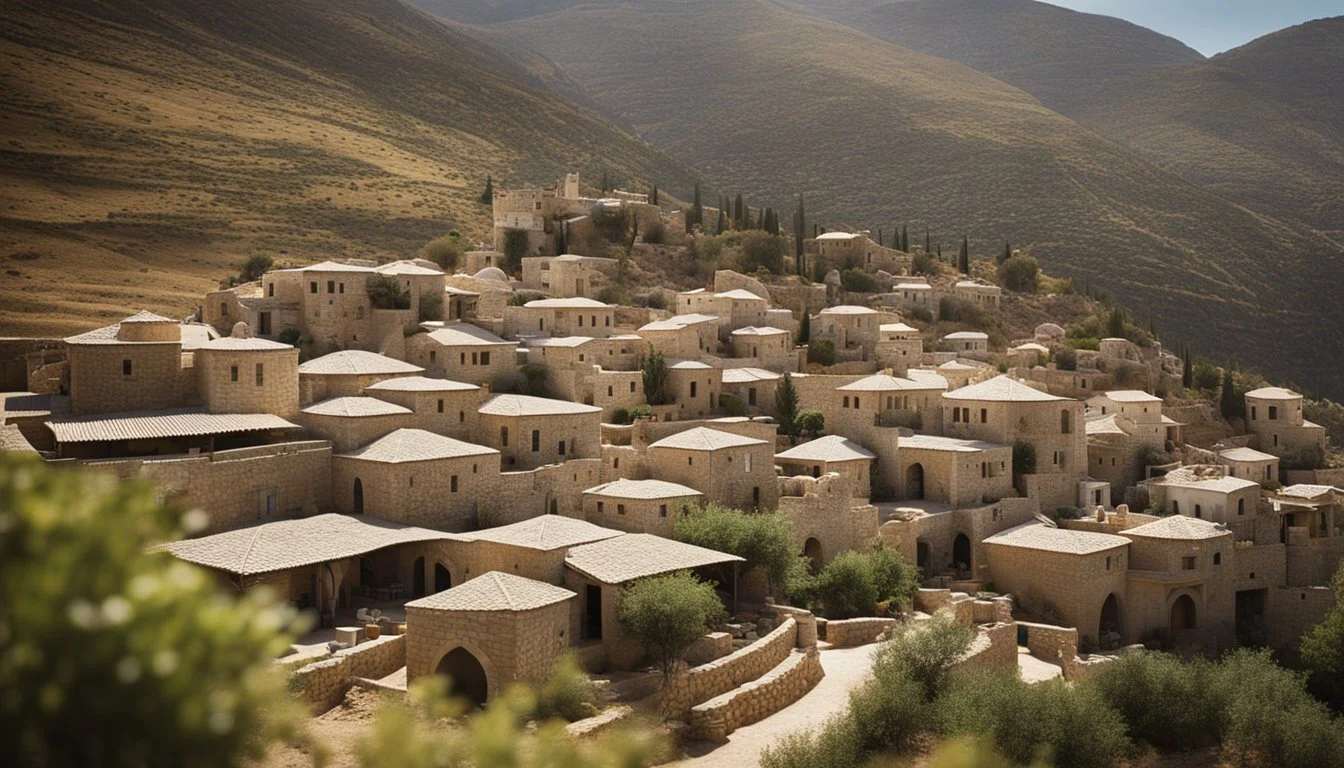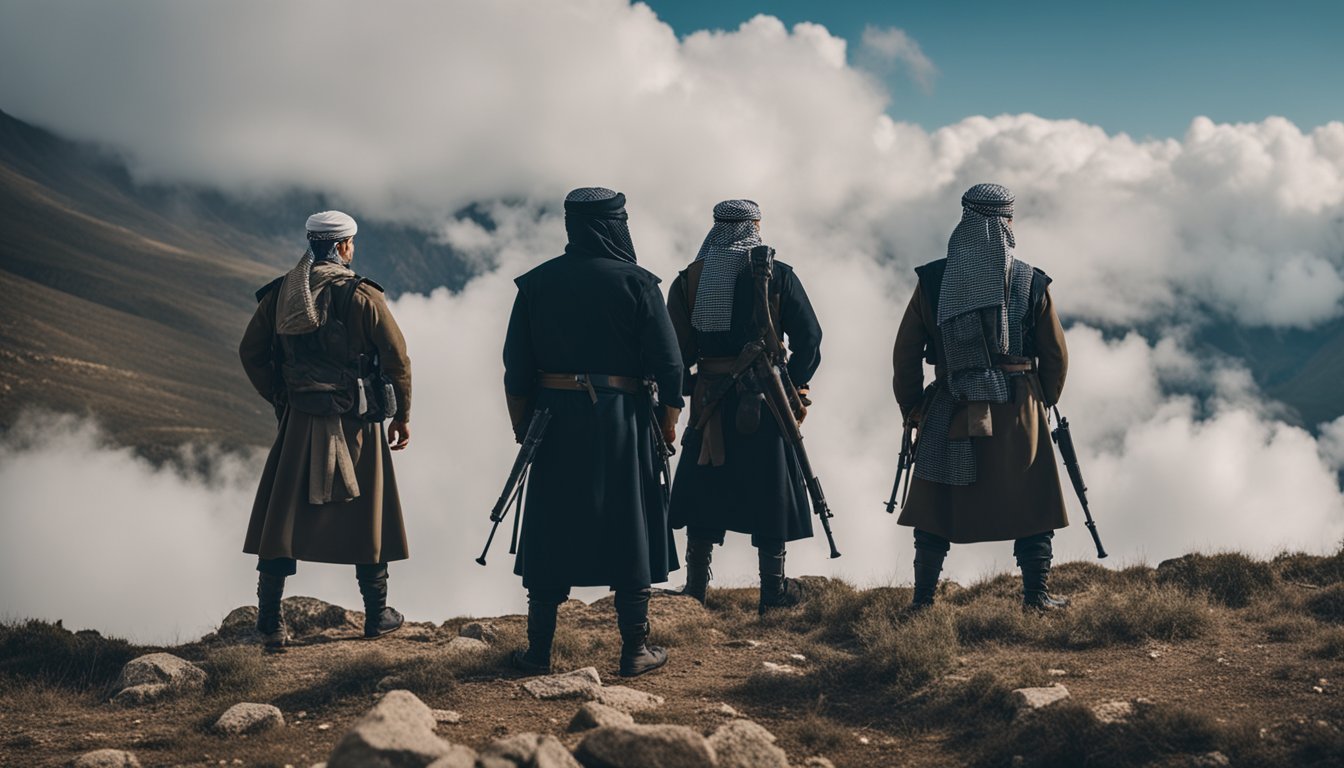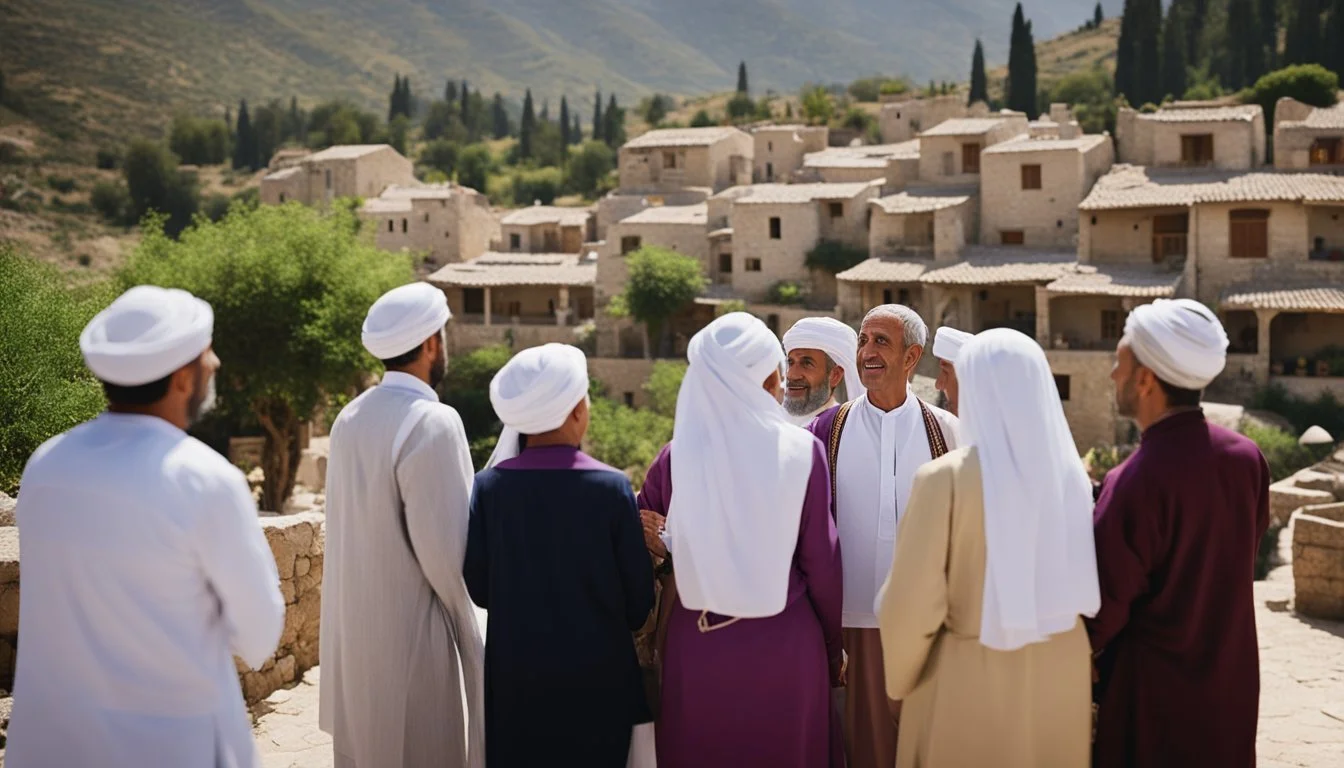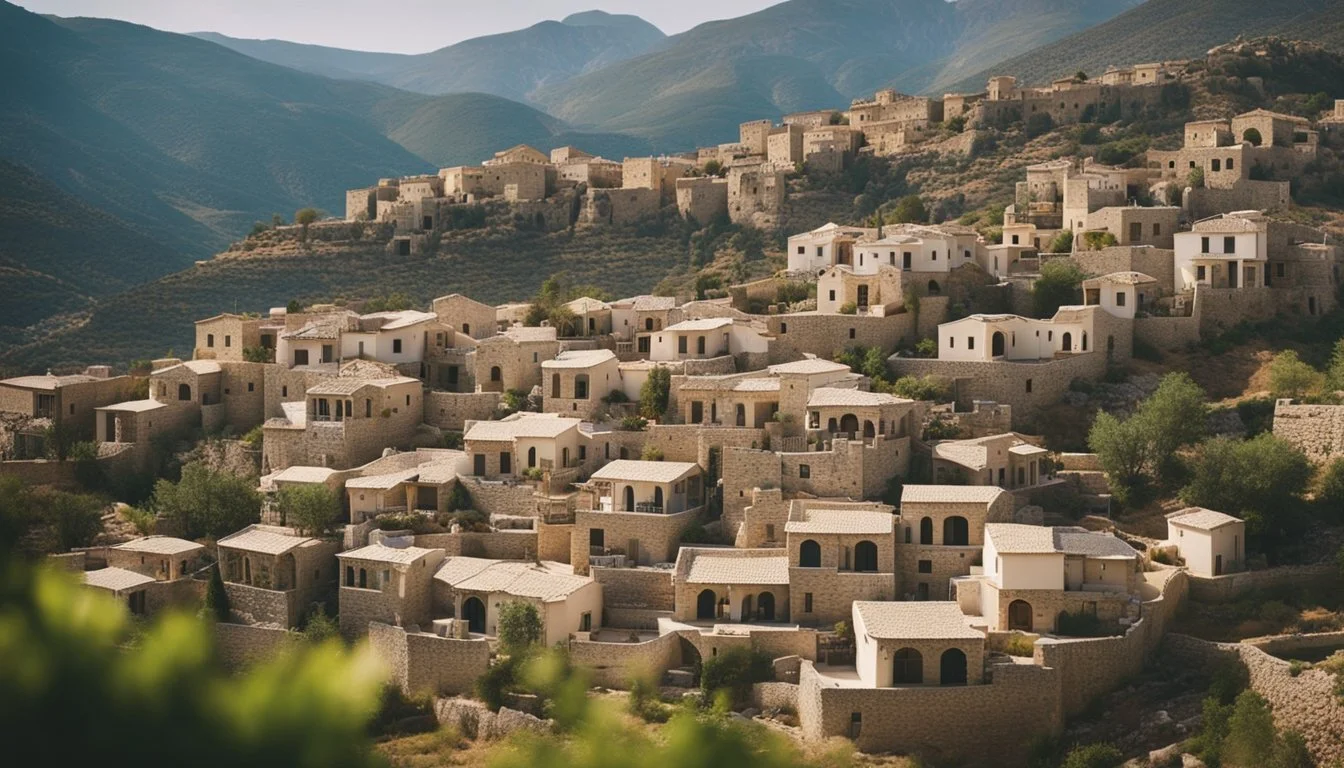7 True Crime Documentaries About Druze Communities
Unveiling Hidden Narratives
The fascination with true crime documentaries has grown immensely, drawing audiences into the intricacies of real-life mysteries and criminal investigations. These documentaries often provide a rich context, shedding light on various communities and practices that might otherwise remain obscure.
Delving into the lesser-known Druze communities, the intersection of culture and crime offers a unique perspective on true crime. By exploring these documentaries, viewers gain insights into the complexities and challenges faced by the Druze people, unveiling stories that are both gripping and educational.
1) Souha Bechara: Resistance Fighter
Souha Bechara's story is one of unwavering resolve in the face of overwhelming adversity. Born in southern Lebanon, she became involved in the Lebanese National Resistance Front at a young age. In 1988, Bechara attempted to assassinate General Antoine Lahad, leader of the South Lebanon Army, a militia aligned with Israeli forces.
Her assassination attempt led to her capture and subsequent imprisonment in the notorious Khiam prison. Bechara endured severe torture during her decade-long captivity, spending significant time in solitary confinement. Her resilience and stoic endurance made her a symbol of resistance against occupation.
Upon her release in 1998, Bechara's experiences and her role in the liberation of South Lebanon gained international recognition. Her life story has been chronicled in various documentaries, highlighting her commitment to her cause and her profound impact on the resistance movement.
These documentaries often delve into her personal struggles, her time in captivity, and the physical and emotional toll of her activism. They provide a compelling narrative of a woman who sacrificed her freedom for her country's liberation.
For more on Souha Bechara's remarkable journey and its depiction in documentaries, visit Wikipedia.
2) The Druze: A Cultural and Social History
The Druze community has a rich and complex cultural and social history. Originating in the 11th century in the Middle East, the Druze faith combines elements of Islam with Hindu and Greek philosophy.
Despite their small numbers, the Druze have had significant influence in the regions they inhabit, including Lebanon, Syria, and Israel.
Throughout history, the Druze have maintained a close-knit community structure. This has helped preserve their distinct religious and cultural identity through centuries of geopolitical changes.
The Druze religion emphasizes loyalty to the community and secrecy regarding its doctrines and rituals. This has often led to misunderstandings and intrigue from outsiders.
Socially, the Druze place a high value on education and public service. Many Druze individuals have achieved prominent roles in politics, academia, and the military in the countries they reside in.
Culturally, traditional Druze practices and customs are passed down through generations. These include unique ceremonies, festivals, and a strong oral tradition that helps preserve their heritage.
For more detailed information on the Druze faith and history, one might refer to dedicated documentaries and scholarly works found through comprehensive sources such as Wikipedia or academic archives.
3) Al-Hakam: The Druze Council Trials
"Al-Hakam: The Druze Council Trials" (2016) takes an in-depth look at the early history of the Druze community, focusing on the period under Cairo's ruler, Al-Hakim bi-Amr Allah.
This documentary highlights the significance of Al-Hakim’s rule, especially his efforts to promote Druzism through missionaries across Arabia.
The film explores Al-Hakim's unconventional rule from 996-1021 CE, which was characterized by a blend of political and religious reformation. His sudden disappearance in 1021 CE left a lasting impact on the Druze community.
Through a series of reenactments and expert interviews, viewers gain insights into the trials faced by Druze councils during this period.
Witness accounts and historical records from Al-Hakim’s mission illustrate the complexities and challenges within the Druze community. The documentary serves as a crucial educational tool for those interested in Middle Eastern religious history.
For more details on "Al-Hakam: The Druze Council Trials" (2016), visit IMDB.
4) Mona Mahmudnizhad: A Druze Story
Mona Mahmudnizhad, born in 1965, was a person of Baháʼí faith, rather than Druze, and her story is deeply tied to the persecution faced by religious minorities in Iran. Although her story does not directly reflect the Druze community, it highlights similar themes of religious persecution.
Mona and her family moved to Yemen for religious teaching before returning to Iran. In 1983, at the young age of 17, she faced execution alongside nine other Baháʼí women, accused of "misleading children" and espionage. Her story reflects the broader struggles minority religious communities endure in oppressive regimes.
While not Druze, her story resonates with struggles faced by marginalized communities globally, including Druze. The documentary "Faith Denied: The Martyrdom of Mona Mahmudnizhad" provides a poignant look into her life and untimely death, exemplifying the harsh realities of religious persecution.
For more on her life, visit Mona Mahmudnizhad (1983).
5) Hiyam and Ehud: Forbidden Love
Hiyam and Ehud: Forbidden Love (2022) documents the tumultuous relationship between Hiyam, a Druze woman, and Ehud, a Jewish man. Their love story unfolds against the backdrop of strict cultural and religious norms.
The documentary explores the challenges the couple faces, including family opposition and societal scrutiny. It delves into the depths of their commitment and the sacrifices they make.
Through interviews and personal footage, the film provides an intimate look at the complexities of cross-cultural relationships within Druze communities.
More information on Hiyam and Ehud: Forbidden Love.
6) The Mount of Druze
"The Mount of Druze" (2016) is a compelling true-crime documentary that explores the intricacies and mysteries surrounding the Druze communities residing in the mountainous regions of the Middle East. This film delves into crimes and historical events that have shaped the Druze way of life over centuries.
Viewers are taken on a journey through various villages, where tragic incidents and dramatic events have occurred. The documentary emphasizes how these communities maintain their unique cultural and religious identity amidst external pressures and difficulties.
A significant portion of the film is dedicated to interviews with local Druze leaders and historians. Their insights offer a deeper understanding of the socio-political challenges the Druze have faced, as well as their resilience in preserving their heritage.
"The Mount of Druze" manages to balance narratives on community strength with darker stories of crime and conflict, providing a comprehensive view of the Druze people. The film stands as an important historical record and a poignant recounting of the struggles and triumphs of these communities.
7) The Druze Resilience
The Druze community has shown considerable resilience over the decades, especially within the State of Israel since its establishment in 1948. This documentary sheds light on the unwavering dedication and bravery demonstrated by the Druze people, particularly illustrated during the conflict from October 7, 2023.
Their notable contributions to the Israeli military and the deep communal bonds have been vital for their survival and solidarity. The documentary captures how the community has balanced their unique cultural identity with modern pressures and ongoing political tensions.
Not merely a historical recount, this film offers personal stories of courage and commitment. Through interviews and archival footage, viewers gain insight into the past and present struggles of the Druze, revealing how they continue to maintain their traditions and cultural heritage amid adversity.
Learn more about this documentary on IMDb.
Understanding the Druze Community
The Druze community is known for its unique monotheistic religion and close-knit cultural practices. This section reveals the historical and cultural foundations that define the Druze people.
Historical Background
The Druze religion originated in the early 11th century in Egypt. It was founded during the rule of the sixth Fatimid Caliph, Al-Hakim bi-Amr Allah, whose divine status is recognized by Druze theology.
The Druze faith emerged as a distinct sect within the broader Ismaili branch of Shia Islam. They developed their own religious texts known as "Epistles of Wisdom." Throughout history, the Druze have settled mainly in Lebanon, Syria, Israel, and Jordan, forming tight-knit communities often in mountainous regions. Their community identity has been maintained through periods of persecution and diaspora, which has influenced their historical development significantly.
Cultural Practices and Beliefs
The Druze culture is characterized by its emphasis on secrecy and communal solidarity. One of the key aspects of their religion is that it is closed to converts and marriages outside the faith are generally frowned upon.
Religious beliefs include the transmigration of souls, meaning they believe in reincarnation. They have a unique interpretation of the Qur'an and consider their religious texts secretive and inaccessible to non-Druze. Social structure within the Druze is hierarchical with "Uqqal" (wise ones) and "Juhhal" (ignorant ones), with only the Uqqal fully initiated into the religious teachings. Culturally, they celebrate life events with specific rituals and maintain a strong sense of community and mutual support.
Insight into True Crime within the Druze Community
True crime incidents within the Druze community are rare, but they have a lasting impact. Law enforcement faces unique challenges in these cases, reflecting the complexities of integrating legal frameworks with the community's traditional values.
Impact on the Druze Community
True crime events deeply affect the Druze community, often exacerbating existing feelings of marginalization. These incidents can strain relationships within the community and with broader society. For example, crimes related to loyalty or identity issues may bring about internal conflict, impacting social cohesion.
The Druze, while integral to the State of Israel, may feel pressure from external perceptions. Media coverage of crime can sometimes reinforce negative stereotypes, further isolating the community. Addressing crime effectively requires cultural sensitivity and understanding the nuanced dynamics of Druze social structures.
Law Enforcement and Legal Proceedings
Law enforcement agencies face particular challenges when dealing with crime in the Druze community. Given the community’s tight-knit nature, there may be a reluctance to cooperate fully with authorities, stemming from a desire to handle matters internally.
Legal proceedings must balance state laws with respect for Druze customs. This can complicate trial processes, influencing aspects such as witness testimonies and evidence gathering. Successful navigation of these cases often requires involving community leaders who can bridge gaps between the legal system and the Druze populace.
Crime investigations involving Druze members must consider both cultural practices and legal imperatives to ensure justice while maintaining community trust.







